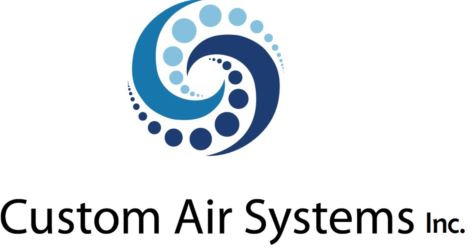
Have you ever performed a double take when you checked your last energy bill? Although high energy bills can be the end result of intense weather conditions, consistently high bills can quickly signify an inefficient HVAC system or your home is misusing energy because of other means, including drafty windows or inadequate insulation.
One of the simplest ways to figure out whether your home is consuming too much energy is by getting a home service professional to complete a home energy audit, also called a home energy assessment. Keep reading to find out more about home energy audits, including what they are and their benefits.
What Is a Home Energy Audit?
An energy audit is a thorough inspection of how much energy your home uses and whether – and where – your home might be losing or wasting energy. An inspector will take a look at past energy bills while completing an energy audit to figure out where energy is being used and how much.
The general goal of an energy audit is to help homeowners save money on their energy bills by suggesting energy-efficient updates, which can include exchanging your current HVAC system, adding new insulation, closing up leaks, or replacing drafty windows.
While completing the energy assessment, the auditor performs an inspection of the outside and inside of your home. The auditor completes a blower door test on doorways, windows and fireplaces to find out if there are air leaks in your home. They’ll also inspect your home’s HVAC system, as well as the ductwork, the water heater, and the insulation in your attic. Comprehensive assessments may also include reviewing your current lighting system.
Benefits of a Home Energy Audit
It can be difficult for the average homeowner to know for certain how efficient their home is in comparison to other similar homes in their area. However, many energy companies often provide information about where your home ranks when compared with similar homes and whether it’s more efficient, about average, or inefficient versus your neighbors’ homes. This can be a useful starting point to figure out if you need an energy audit scheduled.
A few of the benefits of a home energy audit include:
Understanding How Efficient Your Home Is
It’s good to know how efficient your home is and where you’re using the most energy. For example, if your ducts are leaking, it can lead to a sizable increase in your energy bills and excessive wear and tear on your HVAC system because it has to work longer to properly heat or cool your home.
Making Energy-Efficient Updates
An energy audit will outline where you need to make energy-efficient improvements to cut back on energy and reduce utility bills. This may include replacing old weatherstripping or getting a new energy-efficient furnace.
Enhancing Health and Safety
Permitting air to seep into your home via doors and windows, or due to a lack of insulation can cause unwanted moisture to appear, which could negatively affect your home’s humidity levels or produce mold. This can exacerbate health conditions, especially for people suffering from asthma or allergies.
Raising Your Home’s Retail Value
Energy-efficient homes are sought after by homebuyers. You can sell your home more quickly or for more money by showing possible buyers that it’s energy efficient.
How to Complete an Energy Audit of Your Home
Although handling an energy audit by yourself might not be as thorough as hiring a professional, it’ll give you a broad understanding of how energy efficient your home is. If you don’t find any flaws during the DIY test, then you probably don’t need to call in a professional. Try this step-by-step checklist:
- Examine your HVAC system. Broken ducts can lose as much as 20% of conditioned air, resulting in steeper energy bills and greater wear and tear on HVAC equipment. If you discover leaks, use duct tape to close them. If your HVAC equipment is old and wearing down, upgrading to a new system can save you a substantial amount on your energy bills. In some cases, it can be better to call a reputable HVAC company to inspect your system.
- Watch for signs of air leaks. Air leaks on average can increase the energy bills by 10 to 20%. Inside, look for air leaks in areas where you can find a draft, like along the edge of flooring and along baseboards and electrical outlets. Outside, you can look for air leaks around the home’s foundation, siding and mortar. Plug, caulk or seal any air leaks to save money.
- Examine insulation. If your home is older, it could mean your insulation is too. If you can see the joists, you likely need more insulation.
- Check the ventilation. Make sure that all of your kitchen and bathroom exhaust fans are working properly, and inspect for evidence of rot or moisture.
Contact Custom Air Systems Inc for a Professional Energy Audit
If you would like professional help figuring out how energy efficient your heating and cooling equipment is, contact the HVAC professionals at Custom Air Systems Inc today. We’ve proudly supported the residents of Port St. Lucie with quality home services for many years. Contact us today to request an appointment.




